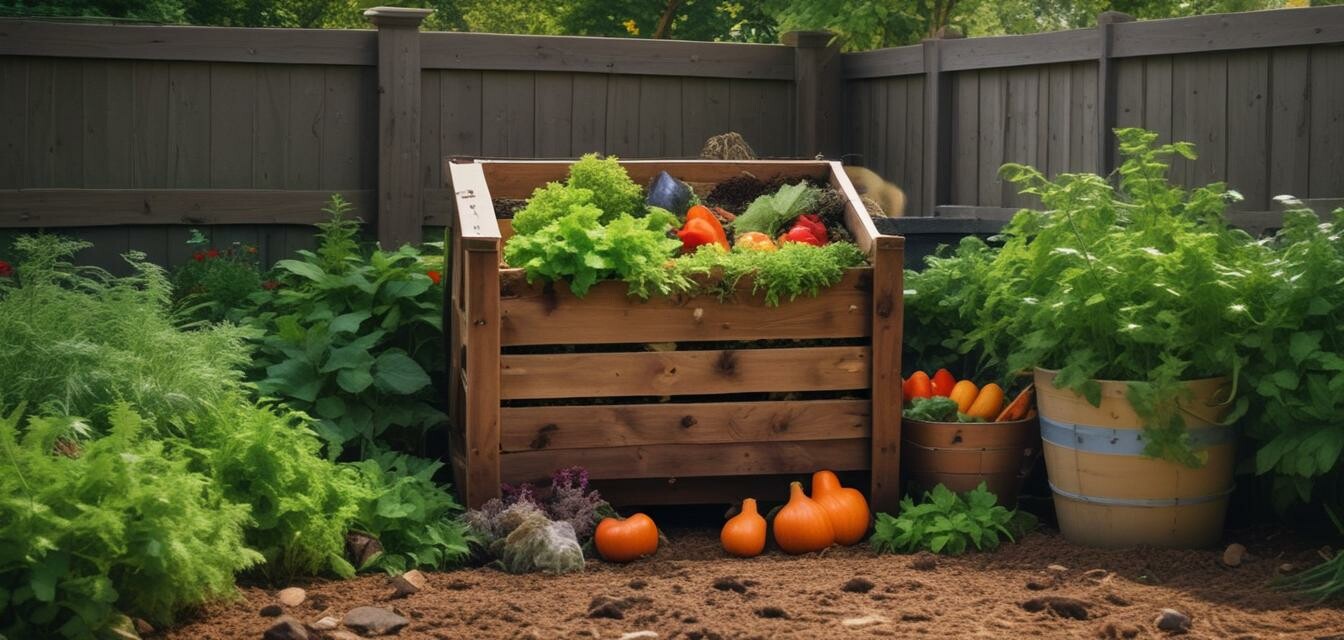
Top tips for maintaining your compost bin
Key Takeaways
- Regularly aerate your compost to speed up decomposition.
- Maintain the right balance of greens and browns for effective composting.
- Monitor moisture levels to keep your compost active.
- Be aware of common composting problems and their solutions.
- Consider using composting worms or bokashi systems for better results.
Maintaining your compost bin is essential to ensure effective composting and a thriving garden. Whether you're using a bokashi composting system, a traditional compost tumbler, or an open air composter, there are several tips and tricks to enhance your composting experience. This guide covers vital maintenance tips and troubleshooting advice to keep your compost bin in top shape.
Essential tips for maintaining your compost bin
Composting is a rewarding endeavor, but it requires attention and maintenance. Here are some crucial tips to help you maintain your compost bin effectively:
1. Regular aeration
Aeration is key to a successful composting process. Regularly turning the compost helps provide the oxygen necessary for aerobic bacteria to thrive.
- Use a pitchfork or compost aerator every 1-2 weeks.
- Ensure all materials are mixed well for even decomposition.
2. Balance greens and browns
Maintaining the right balance of nitrogen-rich greens and carbon-rich browns is vital:
| Greens (Nitrogen) | Browns (Carbon) |
|---|---|
| Fruit scraps | Dry leaves |
| Vegetable peels | Cardboard |
| Grass clippings | Wood chips |
| Coffee grounds | Pine needles |
The ideal ratio is about 2:1 browns to greens for optimal composting.
3. Monitor moisture levels
Moisture plays a critical role in the decomposition process:
- Your compost should be as damp as a wrung-out sponge.
- Add water if it feels dry and turn it to mix.
- If it’s too wet, add more browns to absorb the excess moisture.
4. Keep an eye out for pests
Unwanted pests can sometimes invade your compost bin. Here are some tips to manage them:
- Cover food scraps with browns to stop attracting flies.
- Avoid adding meat or dairy to separate pests.
- If you encounter rodents, consider a closed composter or worm composting bins to deter them.
5. Troubleshooting common issues
Sometimes, compost bins can experience issues. Here are some common problems and how to fix them:
| Issue | Solution |
|---|---|
| Compost smells bad | Add more browns and aerate thoroughly. |
| Decomposition is slow | Check moisture levels and ensure the right balance of greens/browns. |
| Bin attracts pests | Cover food scraps and avoid certain items like dairy. |
| Too wet | Add dry materials like shredded newspaper or leaves. |
Additional composting methods
If you’re looking to enhance your composting game, consider exploring other composting methods such as:
- Worm composting bins for organic fertilizer.
- Smart composters for automated solutions.
- Open air composters for simple setups.
Tips for beginners
- Start small – a countertop compost bin can help you get used to the process.
- Learn what materials are compostable – avoid plastics and metal.
- Be patient – composting takes time; enjoy the process and the gradual transformation.
Pros
- Reduces waste and helps the environment.
- Enriches soil for healthier plants.
- Saves money on fertilizers.
Cons
- Can attract pests if not properly maintained.
- Requires effort and regular attention.
- Some materials may take longer to decompose.
Conclusion
Maintaining your compost bin is an essential part of successful composting. With these tips on aeration, balancing materials, and troubleshooting issues, you’ll be well on your way to creating rich compost for your garden. Continuous learning about composting methods can further enhance your experience. Happy composting!